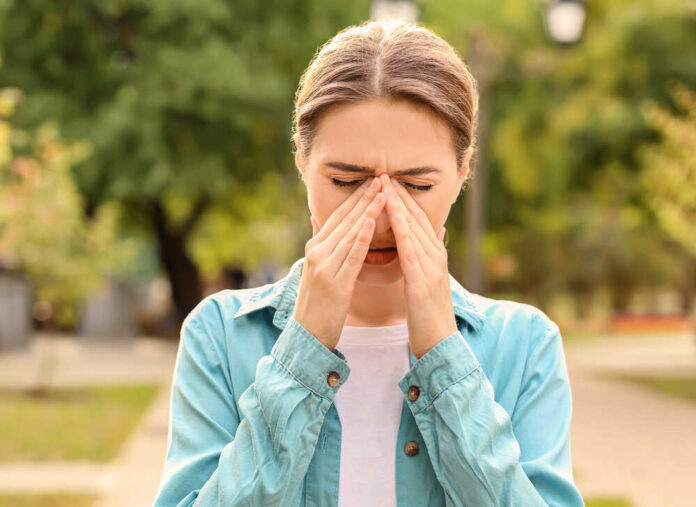
As we approach spring, many of us are already preparing for the seasonal allergies that come with it.
And with each passing year, it seems like allergy season arrives sooner, lasts longer, and is more severe.
But is this apparent lengthening of allergy season just a feeling, or is there actual evidence of it happening?
A new report from Climate Central sheds some light on the issue.
Key Insights of New Report from Climate Central
Climate Central’s new report, “Seasonal Allergies: Pollen and Mold,” provides a comprehensive overview of how climate change is affecting our allergy season.
Analysis of temperature data from 203 US cities shows that the freeze-free season, or the period between the last and first frost, has lengthened by more than two weeks (15 days) on average since 1970.
On average, 85% of the cities surveyed saw their freeze-free seasons lengthened by at least one week. In 31 of these cities, the season between the last and first freeze grew by a month or more.
Impacts of a Longer Freeze-Free Season
A longer freeze-free season means a longer growing season for plants.
Plants leaf and bloom earlier, and they generally spend more time flowering and releasing their allergy-inducing pollen.
A recent study found that North American pollen seasons became longer and more intense from 1990 to 2018, with a 20-day increase in length and a 21% increase in pollen concentrations.
This is bad news for the millions of Americans who suffer from seasonal allergies. According to the Centers for Disease Control and Prevention, approximately 1 in 4 adults and 1 in 5 children in the US have seasonal allergies.
Longer Allergy Season Means More Health Risks
For those who suffer from seasonal allergies, the lengthening of allergy season has serious health implications.
Allergy symptoms such as sneezing, runny nose, and itchy eyes can be extremely uncomfortable and disruptive to daily life.
But allergies can also have more serious consequences, such as asthma attacks, sinus infections, and even anaphylaxis in severe cases.
A longer allergy season means a longer period of exposure to allergens, which can lead to increased severity of symptoms and a higher risk of these more serious health outcomes.
The Role of Climate Change in Lengthening Allergy Season
Evidence continues to mount that climate change is exacerbating seasonal allergies in the US.
Warmer air temperatures lead to reduced freeze events, earlier plant development, and higher pollen counts, all of which (and more) contribute to a longer and more intense allergy season.
In addition, extreme weather events related to climate change—such as droughts and floods—can also impact the development and concentration of allergens from one season to the next.
This new report from Climate Central adds to the growing body of evidence that climate change is impacting not just our environment and ecosystems, but also our health.
Although the lengthening of allergy season may only increase a small amount from year to year, the cumulative effect of these small increases is rapidly adding up to a major public health concern.
If you suffer from pollen or mold allergies, make sure to talk to your doctor about how you can best prepare for and manage the symptoms this upcoming season.






















